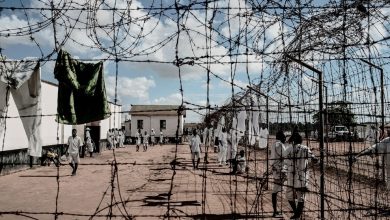May, not so lazy a month
May 24 2023
The Standard 8 English textbook once had a poem about two cows chewing and mooing as they discussed about the lazy month of May. Yet, from the onset, the month of May is not so lazy.
It all begins on the very first day when workers of the world commemorate the World Labour Day. This year, the question one can ask is: Is it worth it, in a nation where the spirit of the Marxist locution ‘workers of the world unite, you have got nothing to lose but your chains’ has been lost in translation?
When that notion and its cousins like ‘an injury to one is an injury to all’ have become but petty patter is it worth recognising the importance of the worker in driving industries?
As far as one can remember, the last time Malawian workers united was in 1992 when general strikes erupted not only against poor economic and social conditions but also a call for political freedoms for more inclusion.
Today, workers of Malawi can scarcely stand to chant that slogan when some workers are getting more than less than the minimum wage. The working conditions in offices, shops, factories, the farms and foundries are so appalling. Workers are abused in unsafe work environments and nobody seems to care.
It is on May 14 that the country remembers the first President Hastings Kamuzu Banda. My entry last week on the merits and demerits of his 31-year rule brought different opinions that left me with the idea that whether he was a despot ruling with an iron fist over a docile people or the only president so far to have been serious about developing the country is subject to personal judgment.
Something that is queer about May is that this is the month that demonstrates the democratic values we so much seem to believe in now. On May 17, two events happened in the history of our nation, in a decade that define the need for the alienable right to political and economic freedom.
On May 17 1983, three cabinet ministers Dick Matenje, Aaron Gadama, Twaibu Sangala and parliamentarian David Chiwanga were brutally murdered in the infamous Mwanza accident at the mercy of Dr. Banda and his cronies. They met their cruel deaths for speaking out against Banda’s autocratic tendencies that led to lack of frugality in state institutions under the ‘royal family’ Jack Mapanje expounded on.
Has anything changed? Among the things the four questioned was not only the over-expenditure in government ministries, departments and agencies, including the State Residences but even the lack of a voice to check and balance the thrift.
Coincidentally, on May 17 1994, Malawians lined up to vote in the historic multiparty elections that saw Bakili Muluzi and the United Democratic Front’s clasped hands clipping the Malawi Congress Party’s black cockerel. Although that general election chased Kamuzu from Sanjika Palace to Mudi House with his Unity, Loyalty, Obedience and Discipline to pave way for Muluzi and his Poverty Alleviation notions, what has changed?
The Great Almanac reminds us that the greatest number of people to be devoured by crocodiles on a single day was in Malawi on May 23 1965. It records that 150 people became ‘meat to the crocodiles’ following an accident at the Liwonde Ferry.
From an oral source, we learn that the target for that accident was Kamuzu himself by one of his henchmen who met an unfortunate fate since the Ngwazi had got wind of the plan and changed his route from using the M3 on his way to Blantyre from Machinga through Zomba. He used the Matope Road (which remains the Matope Road decades later from Masaula to Lirangwe!
On Thursday [May 25] Africans celebrated the Africa Day. Photos of the celebrations were awash on social media. They showed Africans at home and in the diaspora in African print and eating their food and dancing to their music. But should it end at that?
Is it not time to think about the reparations for the cruelty of slavery African peoples suffered under the yoke of dehumanisation those who brought the Gospel infused on them? Is it not about time to think about the land alienation that led so many Africans homeless and poor as the Europeans grabbed and abused the locals in the land alienation that resulted from colonisation?
Isn’t it time that the voice for climate justice was heard here and beyond as Africans in these parts suffer the worst ‘unnatural’ disasters brought by ‘industries’ in the West? Climate change effects are worst felt in Africa, yet the greatest effects are brought about from the North.
This year, in May, MCP cadres beat up a Times Group photo-journalist at a presidential in Blantyre. Yet, all we hear is some ministerial apology. Really? No criminal investigations whatever! May, May, May. May you end well.
A reminder to the MCP remains: When the beatings begin, it is the beginning of the end. They can check the diaries of the UDF and the Democratic Progressive Party. As the month draws on a close, it is important to remind each other that this is not a month to chew and moo to pass the hours away like those lazy cows in the Standard 8 book.


